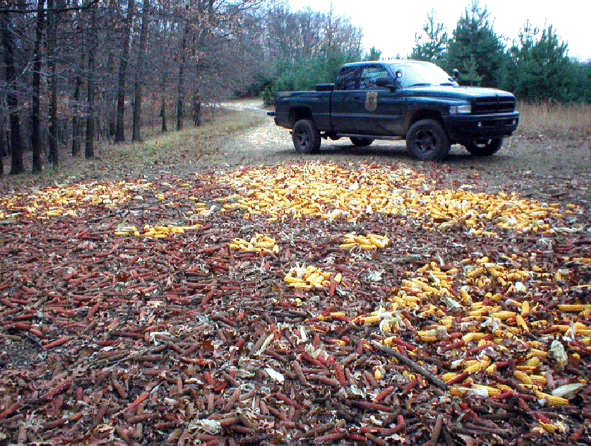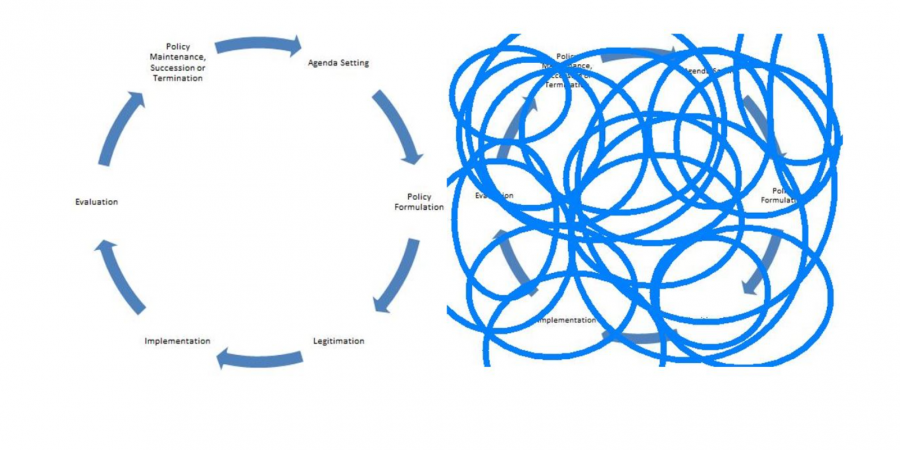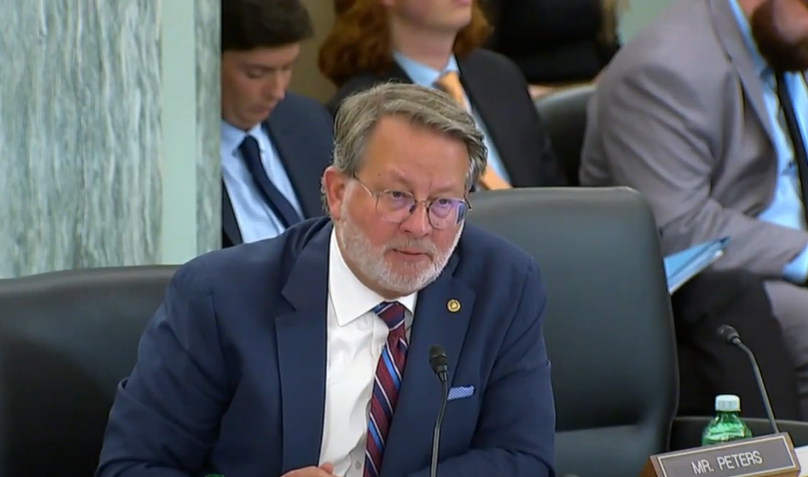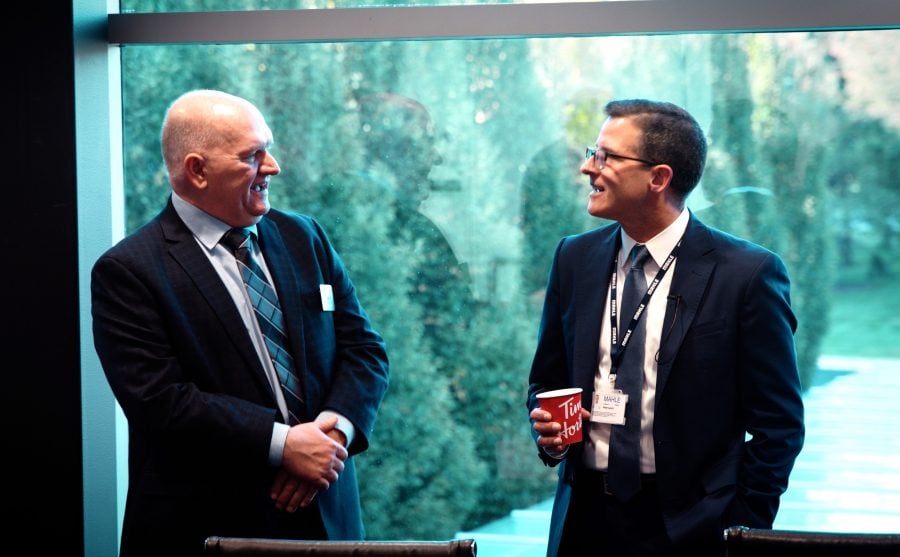
1978. That was the year that a young Jacque Smith, a junior at Marist High School, stopped at a bulletin board. Why? His eye caught a flier for one of Michigan Tech’s Summer Youth Programs.
Growing up in the busy city of Chicago, and fascinated by science, this flier spoke to him.
It offered the winning combination of an experience at a STEM school, a taste of the great outdoors, and, of course, a chance for many adventures.
So he just had to go.
That early taste of Tech, which also introduced Jacque to the UP, stuck with him. So when it was time to apply to colleges, Michigan Tech was not at the top of his list; it was the only school on that list. Off he went, eventually graduating with a BS in Mechanical Engineering in 1985.
But his relationship with Michigan Tech did not end there. That is, as a valuable staff member, Jacque has been involved with and dedicated to MTU for over 18 years. During this time, he has graciously shared his substantial and varied talents with our Husky community. After beginning under Dave Reed, the Vice President for Research, he moved over to the Graduate School. While there, he has had multiple roles involving admissions and graduate education. He even, for seven years, leant his service to the Alumni Board.
Readers have already learned about the busy schedule and ambitious initiatives of Vice President for Global Campus and continuing education, David Lawrence. They’ve learned about Brian Hannon’s hockey history, MTU origins, and KRC involvement. They’ve also caught a glimpse of Amanda Irwin’s commitment to students and online education. So it was time to introduce Jacque Smith, a crucial part-time team member of Global Campus.
I felt grateful, nay privileged, to catch up with this busy man (and very personable guy).
Thank you for agreeing to this interview. First, please state your title and your position at the Graduate School. What do you do in this role? And how is it connected to your role at Global Campus?
In the Graduate School, I am Director of Graduate School Operations and Enrollment Services where I’m involved with pretty much all the Graduate School processes and policies. Although I don’t have an official title in Global Campus, I feel directly connected to it because we have common goals. That is, I’m a liaison who’s trying to optimize processes and outcomes for Global Campus. Doing so then optimizes those same things for the Graduate School. We’re all trying to improve the admissions experience and get students into programs.
Jacque, give me a breakdown of what you do on a regular day.
I’m a morning person, so I am usually on campus before 7am. And I start my day reading my emails, looking at things that are going on, and then I have my first meeting every day at 8:15 AM with the rest of my admission colleagues and Amanda Irwin from Global Campus. This meeting is where we interact every day to solve problems and to help people. Then, there are various meetings, which could be with Faculty, Global Campus, corporate partners.
A big part of my day is admission matters, in which I’m helping students get to a completed application so they can, ultimately, get a decision. I also make admission decisions for multiple masters’ programs here on campus. So I’m reviewing students’ completed files and making decisions on which students we think will have the best chance of success for our programs.
Why get involved with graduate education? That is, why do YOU think that graduate education matters? What’s your personal motivation to help students get advanced degrees whether online or in-person?
I often tell students that it’s not a question of if you’re going to go on to an advanced degree; it’s a question of when you’re going to do it. In reality, I think advanced degrees are required for our students to get to where they want to go, to get into the types of positions they want, whether it’s management and so on.
Many of our students are striving for more and want different paths. So they need that extra degree. And some people who have their bachelor’s are moving along, they’re doing great things, but they decided they don’t want to do that job forever. I want to help people pivot in their lives, to move in different directions and hopefully be more satisfied.
Jacque, you’re also one of the most enthusiastic advocates, or maybe ambassadors, for Global Campus, Michigan Tech, and the Graduate School. Where have you traveled to recruit students?
I not only have been around the State and the country recruiting students for Michigan Tech, but also have traveled to Thailand, India, and Japan in search of students who are the right fit for this university. Tomorrow, on March 20, I’m traveling down to Chicago to take part in the national MANRRS conference. The mission of MANRRS is to “promote academic and professional advancement by empowering minorities in agriculture, natural resources, and related sciences.” While there, I will be representing Michigan Tech and trying to recruit students.
What is the most rewarding part of your job?
The most rewarding part of my job is helping students get through the admissions process and into programs that, I believe many times, are life-changing events. Students come in and when they come out the other side, they often have amazing careers and do amazing things. So helping people get started is probably one of the most rewarding things for me.
Then there is working in the Graduate School itself. I’m dealing with people all around the world: over 50 different nations. So it’s fascinating to sit at my desk and interact with people from all kinds of different countries, helping them out. Another thing I really like about being in the Graduate School is that it encompasses the whole campus. I’m not just dealing with one individual academic program; I’m dealing with all the different academic programs and all their nuances. So, on a daily basis, my job gets me more involved in MTU.
What is the most challenging part of your job?
The most challenging part of my job is choosing the best opportunities for Tech. That is, there are so many wonderful things we can be doing to improve the exposure of Michigan Tech, increase our enrollment, and make connections. The tough part is balancing the resources we have while deciding what will bring the best result for the university.
As part of MTU’s mission to support industry in the state of Michigan, Michigan Tech and Global Campus are involved with several corporate partners, which you occasionally get to meet during formal events. Jacque, can you speak of some of your experiences at these events?
Often when we visit these companies, we get to see their facilities. These companies are proud of what they do, just as Michigan Tech is, so they want to show it off. It’s always a privilege to get an inside peek at many of these corporations. We get to tour their facilities, their plants, and meet with their employees and leaders. And we see behind the scenes. It’s also impressive to see the Michigan Tech alumni who are working at these places, helping to build these technologies.
Why Michigan Tech? That is, what is it about this university and this area that make them a natural fit for you?
As I’ve said before, I’m both a graduate of the summer youth program and Michigan Tech, so I have a long history!
About Michigan Tech. I believe it’s the size and the resources and its focus on STEM, which were and are still appealing to me. I’ve always been interested in technical fields. But then I’ve always had an outdoor side to me too. And this university is like a natural extension of these interests. Along with the academics and the programs, there is the location. This area allows me the ability–and I know other people use this term, too–to have micro adventures. I don’t need two weeks to go do something. I can go out on an afternoon and have an amazing experience just because everything is so close in the Upper Peninsula.
When you’re not working for the Graduate School or Global Campus, what do you like to do in your free time? Where can we find you, for example, on the weekend?
I’ve always been an adventurer: a hiker, a climber, and a camper. I’ve done many different activities and I still do a lot of them. Right now, you can often find me on jeeping adventures where I go off-roading to access out-of-the-way areas to camp and stay—to just kind of get out of town and find visually beautiful places. And I often meet great people on these adventures. There’s a certain camaraderie about these experiences. Luckily, I have a wonderful girlfriend who supports me and my jeep journeys!

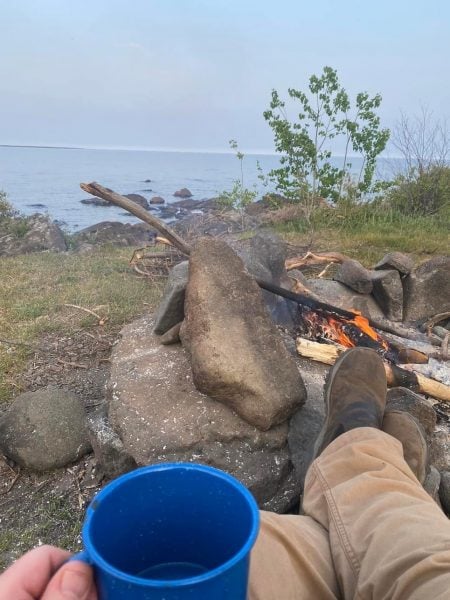
Is there anything else you’d like to add?
One thing has always struck me. Wherever I’ve traveled, it always seems that I find a link to Michigan Tech. Or I meet MTU alumni. It’s a very small world. That is, it seems like no matter where I go, I’m delighted to discover yet another Michigan Tech connection!
I’d like to end by saying that, again, I really enjoy having conversations with current and potential students, determining what their needs are and how Michigan Tech can help fulfill those needs. And I think that graduate school, whether online or in-person, allows students to achieve their goals and get them to where they need to be.

